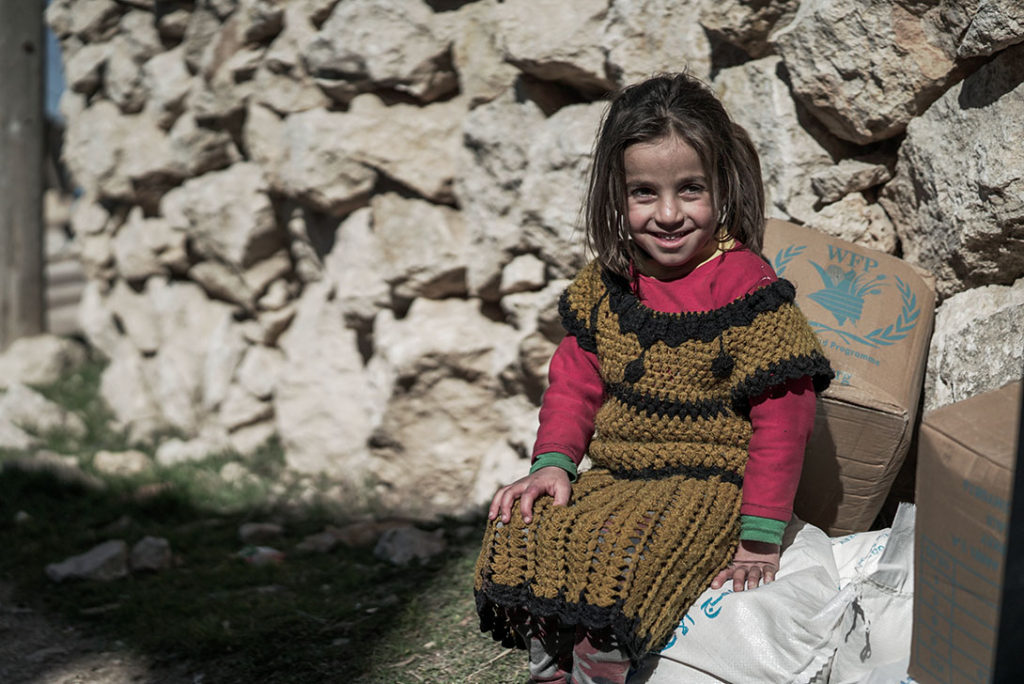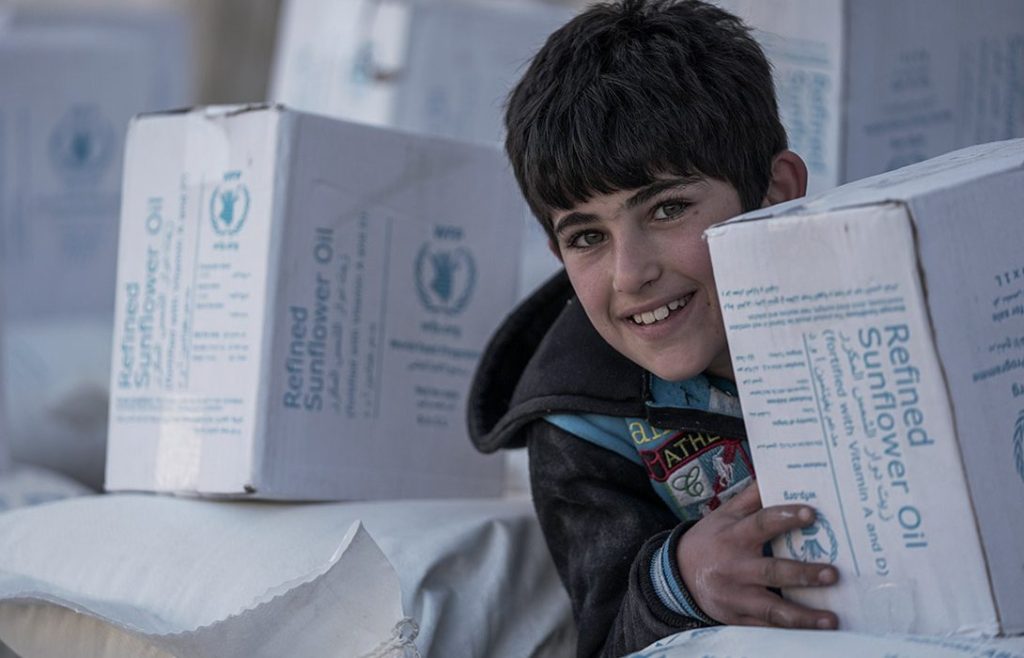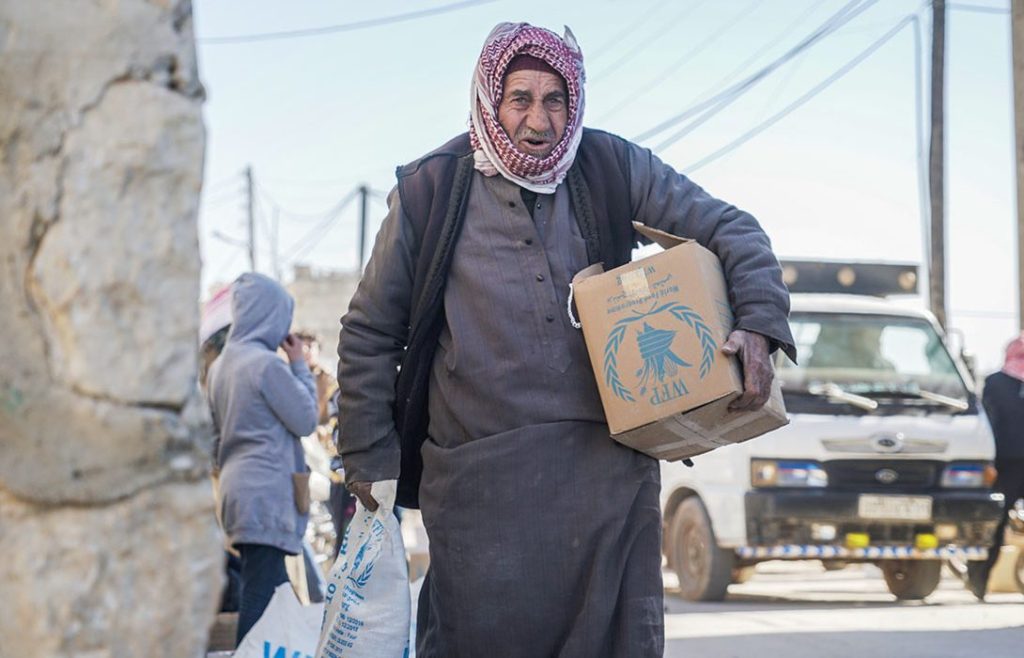In 2017 Islamic Relief will work with WFP to support over 24,000 families (120,000 people), providing monthly food parcels and supplementary food for children.

As the crisis in Syria has entered its seventh year, civilians continue to bear the brunt of a crisis marked by unparalleled suffering, destruction and disregard for human life. More than 13 million people need humanitarian assistance, including almost 5 million people who are trapped in besieged and hard-to-reach areas exposed to grave protection threats. More than 6 million people within Syria are now displaced from their own homes. Add to that number those who have fled the country and more than half the population have been forced from their homes, with many people being displaced multiple times. Children and young people, millions of whom have known nothing but crisis, make up more than half of Syria’s displaced people and half of those in need of humanitarian assistance. Since 2011, on average, a staggering 50 Syrian families have been displaced every hour of every day[1].
Needs are great across all humanitarian sectors, with food security of particular concern. Six years of crisis in Syria coupled with inaccessibility, besiegement and displacement have contributed to multiple, mutually reinforcing triggers of food insecurity. Combined, these have contributed to low performance across three core food security indicators – food availability, coping strategies and food consumption. With erratic and below average rainfall in the cereal-producing governorates of Aleppo, Idlib, Raqqa and Homs, food supplies are under pressure. The wheat production in 2016 is 45% less than in 2015 and 63% below production in 2011 before the crisis. An estimated 7 million people are food insecure and a further 2 million people are at risk of food insecurity making this one of the most pressing needs in Syria.


Islamic Relief established a team in Syria in April 2012 to respond to the needs of displaced and vulnerable people. Since then we have accumulated extensive experience of operating inside Syria and providing urgently needed life-saving support to people in crisis-affected areas. In March 2015, Islamic Relief developed a partnership with the World Food Programme (WFP) to provide food assistance to the most vulnerable families inside Syria. In 2016, around 154,000 people (13,000 families) were supported with monthly food assistance in Aleppo and Idlib governorates to meet basic nutritional needs.
We recognise that children are particularly vulnerable amongst the targeted families. Children have additional nutrition needs to aid their growth and development. We delivered a supplementary feeding programme for children aged less than five, with around 20,000 children benefiting from additional nutrients every month.
The World Food Programme’s Ready to Eat (RTE) programme provides sufficient food to cover a family’s needs for one week. The aim is to quickly provide meals to families who have been forced from their homes multiple times, moving from place to place. In the month of December alone, RTE reached 3,857 families (20,000 individuals). These people had been displaced from rural Damascus and Aleppo city. Islamic Relief’s successful mission was to reach them in less than 72 hours, ensuring their basic food and survival needs were met.
The partnership between Islamic Relief and WFP has made a significant contribution to alleviating the suffering of extremely vulnerable people including both displaced families and their host communities. The project was implemented inside and outside camps.
In partnership with WFP Islamic Relief is committed to continuing its efforts to reach the most vulnerable people in Syria with a focus on food security and livelihoods. In 2017 Islamic Relief will work with WFP to support over 24,000 families (120,000 people), providing monthly food parcels and supplementary food for children. In the future WFP plans to build the resilience of the communities and invest more in transition from food assistance to livelihoods, a vision shared by Islamic Relief.
Input your search keywords and press Enter.